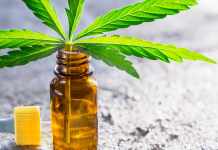Have you recently realized that you have a drinking problem? Are you thinking of attempting to detoxify by yourself? Well, although it’s excellent that you’ve recognized that you need to get sober, beating an alcohol addiction isn’t nearly as straightforward as you might think. Even if you’re determined to quit, withdrawal symptoms can be uncomfortable and sometimes dangerous, and you may end up relapsing to ease your suffering.
So, if you wish to get through your withdrawal process safely and effectively, and move on to successful recovery, consider seeking professional help from a reputable alcohol rehabilitation center.
Table of Contents
Deadly Symptoms of Alcohol Withdrawal
Alcohol consumption gradually affects the neurochemicals in your body, and over time, you’ll increasingly require alcohol to behave normally. If you stop using it suddenly, the body goes into panic mode as your chemicals are thrown into unexpected imbalance. The severity of the withdrawal symptoms depends on several factors, including how much and how long you’ve been abusing alcohol, your medical history, previous traumatic occurrences, and family genetics.
Although common initial symptoms like anxiety, hand tremors, confusion, nausea and vomiting, headaches and insomnia are not life-threatening, some, like the six below can be deadly if they occur at home, without professional intervention.
1. Depression
Depression can start setting in within the first 12 hours of withdrawal. Expect to experience a general low mood and concern about your well-being, whose level will depend on the severity of your addiction. You may even begin to have thoughts of self-harm or suicide.
2. Increased Blood Pressure
The nervous system responds to alcohol deficiency in several ways, one of which is increasing the heart rate. High-blood pressure can persist for several days, and when left unchecked, can result in a heart attack or stroke.
3. Seizures
If you’re a chronic alcohol abuser, you’re likely to experience seizures after 24 hours alcohol-free. A seizure is a brief episode of uncontrollable physical reactions caused by excessive neuronal activity in the brain. Getting hit with a seizure at home can result in death due to factors like falling and hurting your head, suffocating due to irregular diaphragm movement, or drowning in a pool or bathtub.
4. Extreme Heart Arrhythmia
After two days without alcohol, expect to start experiencing full-blown Delirium Tremens (DTs). In addition to more frequent seizures, your heartbeat can become increasingly irregular, resulting in a heightened risk of sudden cardiac arrest. DTs is the leading cause of death among withdrawal patients and the primary reason why it is highly advisable to detox from alcohol with the help of a professional.
5. Hallucinations
Confusion can morph into delusions within 24 hours after you stop drinking. You may start hearing and seeing things that are not there and become restless, jumpy and paranoid. When hallucinating, you can harm yourself unintentionally if you get your hands on a weapon, fall down the stairs, or wander into traffic.
6. High Fever
Alcohol withdrawal syndrome causes general hyperactivity, which can raise your temperature significantly. The body can also misinterpret the deficiency of alcohol and the resulting chemical imbalance as a form of infection and respond by producing a large number of pyrogens. If unchecked, high fever can result in convulsions and death.
Conclusion
While you may have heard stories of successful home detoxification, it doesn’t change the fact that alcohol detox can have dangerous withdrawal symptoms. Your best bet is to check yourself into rehab. The medical staff there will give you the helping hand you need to make it through detox safely. If you are suffering from alcohol addiction seek help as soon as possible. There are several alcohol rehab centers in Bellevue, Washington that can help you recover from your addiction.
















